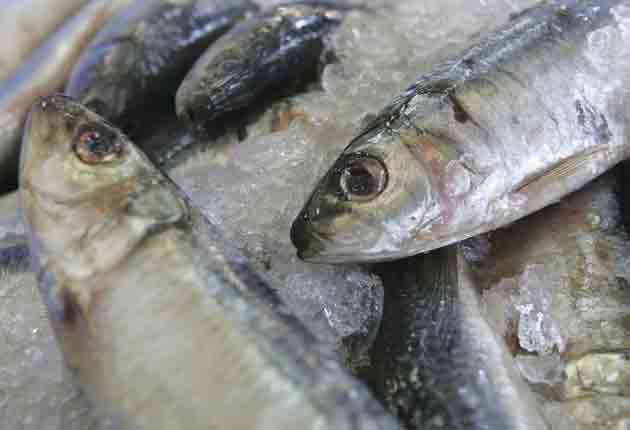Fish oil supplements won't keep the doctor away, finds new research

Your support helps us to tell the story
From reproductive rights to climate change to Big Tech, The Independent is on the ground when the story is developing. Whether it's investigating the financials of Elon Musk's pro-Trump PAC or producing our latest documentary, 'The A Word', which shines a light on the American women fighting for reproductive rights, we know how important it is to parse out the facts from the messaging.
At such a critical moment in US history, we need reporters on the ground. Your donation allows us to keep sending journalists to speak to both sides of the story.
The Independent is trusted by Americans across the entire political spectrum. And unlike many other quality news outlets, we choose not to lock Americans out of our reporting and analysis with paywalls. We believe quality journalism should be available to everyone, paid for by those who can afford it.
Your support makes all the difference.Eating two portions of oily fish a week could help ward off a stroke, research suggests.
Scientists have found that eating two helpings of oily fish - such as salmon, trout or mackerel - every week could moderately reduce risk of a stroke.
However, fish oil supplements do not have the same beneficial effect as oily fish such as kippers, sardines, fresh tuna or whitebait, the study found.
An international team of researchers, including Cambridge-based academic Dr Rajiv Chowdhury, examined the association between oily fish, which are a good source of Omega 3 fatty acids, and the risk of strokes or mini-strokes.
They looked at 38 studies involving almost 800,000 people across 15 countries, and examined participants' fish and long chain omega 3 fatty acid consumption. During the studies, a total of 34,817 strokes and mini strokes were recorded.
After adjusting for several risk factors, participants eating two to four servings a week had a 6% lower risk of stroke compared with those who consumed one portion or less every week, the study found.
Fish oil supplements were not significantly associated with a similar reduced risk, according to the paper published on bmj.com.
Eating oily fish has already been linked to other health benefits such as reducing the risk of heart disease.
The Food Standards Agency recommends that everyone should eat at least two 140g portions of fish a week, including one portion of oily fish.
"From past research we know that eating plenty of fish is good for our general health," said Dr Peter Coleman, deputy director of research at the Stroke Association.
"This research shows that it could also help to protect us against stroke. However, it's interesting to see that taking fish oil supplements doesn't have the same beneficial effect.
"People who eat lots of fish may have healthier diets in general which could go some way to explain the results. However, a lot more research is needed in this area before we decide to eat fish every day of the week.
"Everyone can reduce their risk of stroke by exercising regularly, consuming a healthy, balanced diet and getting your blood pressure checked."
PA
Join our commenting forum
Join thought-provoking conversations, follow other Independent readers and see their replies
Comments